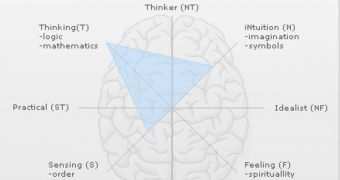The links that the human brain makes are, at times, very odd, and researchers have spent vast amounts of time studying them. One such class of interactions is that which occurs between a person's emotion and their identity. In a new survey, investigators from a consortium of universities and other research institutes have focused their efforts on understanding how cultural identity can be influenced by strong emotions, and also on seeing if something that is supposedly rooted very deep in an individual can be influenced by something as simple as mood swings.
The team that conducted the recent study was composed of psychologists Claire Ashton-James, from the University of British Columbia, William W. Maddux from the Institut europeen d'administration des affaires (INSEAD), Adam Galinsky, an expert at the Northwestern University, as well as Tanya Chartrand, from the Duke University.
They focused their efforts on studying the cultural differences between the Western culture, which is based on independence and individuality, and Asian ones, which mostly advocate community and harmony. This cultural “divide” offered them the ideal test material for the research.
Working with volunteers of different ethnic origins and nationalities, the team used two methods to lower or to raise their moods. In one instance, they used music to control the participants' moods, by making them hear either happy, upbeat Mozart music, or some of Rachmaninov's operas, which made the subjects feel a bit low. In another instance, the researchers made half of the volunteers hold pens in their mouths. While some held them with the teeth, thus forcing the face into a smile, others were asked to keep the pens in their mouths with the help of their lips, forcing the face into a frown.
Two tests were then applied to each individual. Participants were asked to select between five pens, of which four were blue and one red. Asian volunteers selected, on average, one of the blue items, while Western ones predominantly selected the red one. The next test asked each of the test subjects to answer the question “Who am I?” by listing 20 answers. The replies were then analyzed, as the psychologists looked for traits denoting either individualism, or orientation towards the community.
The results were pretty amazing, the team shared. When in an upbeat mood, participants were very likely to try things that were inconsistent with their cultural norms. Asians became more self-oriented, while Westerners showed more interest in cooperation. Conversely, when the mood was low, individuals were more likely to keep in touch with their cultural heritage. The study, published in a recent issue of the journal Psychological Science, also revealed upbeat people to be more daring in nature, and more likely to break from cultural stereotypes.

 14 DAY TRIAL //
14 DAY TRIAL //